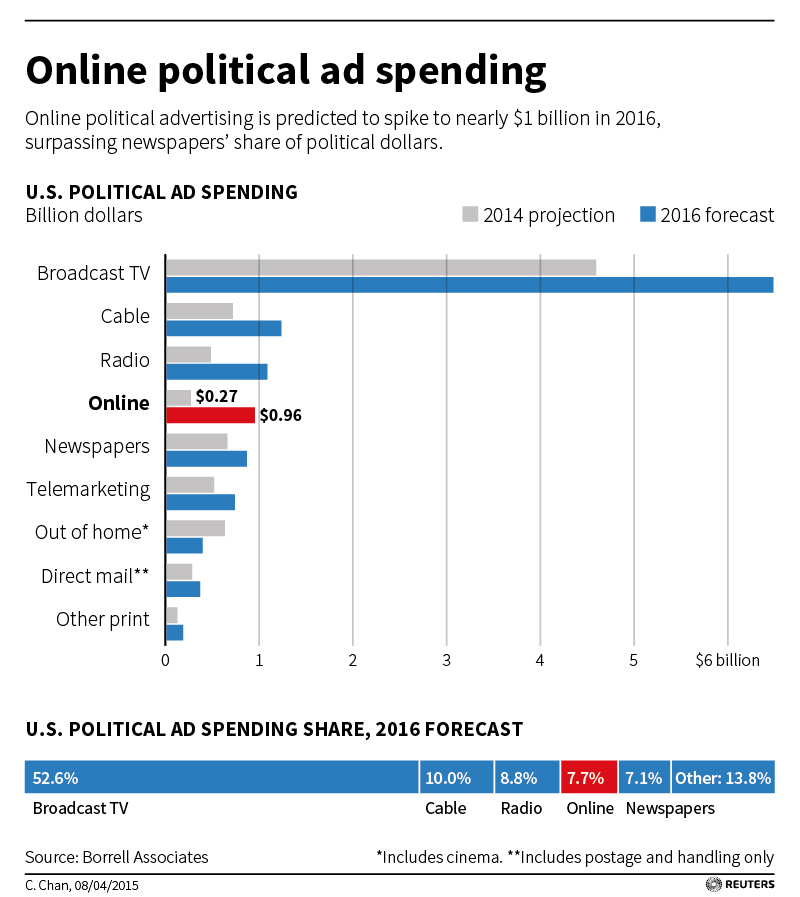2016 Presidential Election Spurring Unprecedented Online Advertising Arms Race

When it comes to presidential campaigning, television, mail, print, and radio advertising have become the hallmarks of an election year. In 2012, Mitt Romney and Barack Obama alone spent over $800 million on just TV advertising. According to the Washington Post, more than 85 percent of this money went toward trashing the other candidate.
However, projections suggest that online advertising is quickly becoming a staple in political campaign strategy. In a Reuters report released Tuesday, online political advertising is projected to quadruple by 2016.
"A niche sector in a multi-billion election industry, are poised to play a much bigger role in 2016 as digital ads assume more importance and change the way political money is spent on advertising." - Reuters
The 2016 presidential election may become the first election where more campaign advertising dollars are spent online than in newspapers, direct mail, or telemarketing. If predictions are correct, online advertising will become a top form of political advertising behind television/cable.
Given that television remains the most expensive and lucrative advertising medium, 2016 will undoubtedly be a record-breaking year for TV networks as well. However, the writing is on the wall: politics is going digital in a big way.
A consequence of more digitized campaigning is which types of voters will see what. Candidates have more power than ever to target specific types of voters with a specific type of message -- a capability that is not without consequence. In a political climate where voters are more polarized than ever, chances are the 2016 presidential campaign will echo tried-and-true partisan talking points to a narrow base of voters.
From the Reuters report:
Digital targeting works like this: First, partisan data firms, like i360 and Data Trust on the right and Catalist and TargetSmart on the left, compile detailed voter databases and scrutinize them for demographic and geographical information on 190 million registered voters. Next, digital targeting firms like DSPolitical, CampaignGrid, and Targeted Victory, map the voter datasets against commercially available data like Internet histories and real estate and tax records. So, a candidate attempting to reach environmentalists in Detroit could, for example, send online ads to specific registered voters in the Detroit metro area who had typed “Toyota Prius” into Google. Predictions for 2016 show online advertising will consume only 8 percent of media budgets, or $955 million. But the growth has been explosive - up from $270 million in 2014 and just $14 million in 2010, according to Borrell Associates, a research firm that tracks advertising.
Image: Mashable




